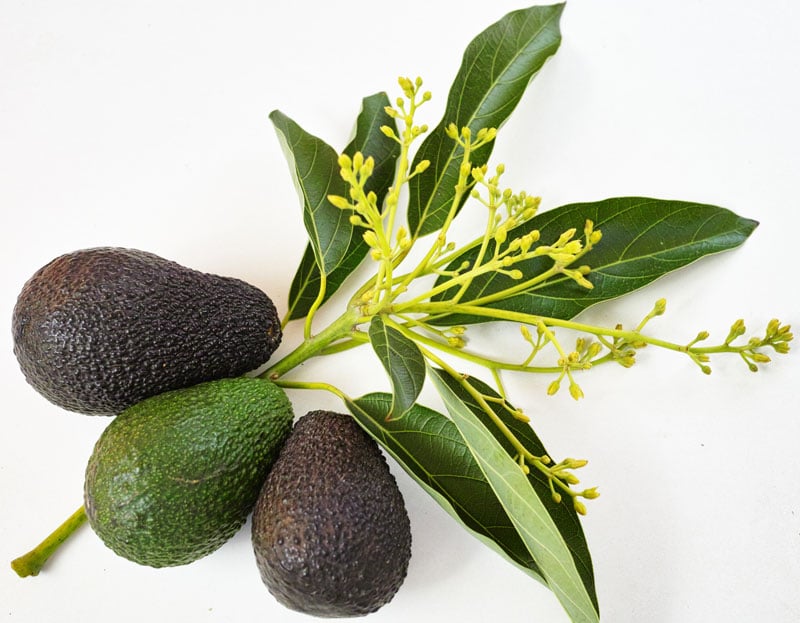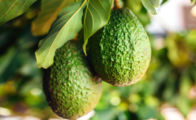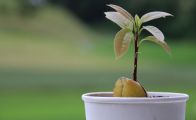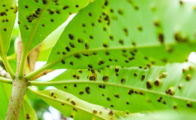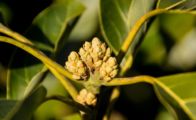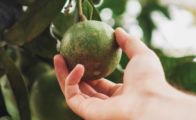While you may have heard of a Hass avocado or a Californian avocado, did you know there are actually dozens of avocado varieties out there? If you’re interested in learning to grow avocados, either from pits or from plants, it’s important to know what your options are. In this article, we’ll discuss the different kinds of Type B avocado.

Everyone Has Heard of Hass
Most of us who buy avocados frequently have heard of Hass avocados. They’re readily available in most grocery stores and they’re delicious. Did you know that Hass avocados aren’t necessarily popular because of their taste? While they are good, Hass avocados are produced in such high numbers because they ship and store quite well. That means they can survive being shipped long distances, to a grocery store near you, while still maintaining their freshness. This makes Hass avocados the most appealing for mass production and distribution. However, this doesn’t mean that Hass is the best avocado.

Type A Vs. Type B Avocado
There are 2 broad groups of avocados: Type A and Type B. They are differentiated by the way their flowers bloom. We discuss the difference between Type A and Type B in more depth here. For the purpose of this article, know that growing both Type A and Type B avocados in close proximity is best to ensure the optimal production of healthy fruit. Types like Hass and Reed are known to still produce well without a partner tree of the opposite type, but some types of avocado trees almost fail to produce at all in such circumstances. Learn more about telling the difference between a type A and type B avocado tree here.
Type B Avocado

Fuerte
Fuerte means “strong” in Spanish. This variety is the 2nd most popular variety of commercially-grown avocado after Hass. It is often grown as the cross-pollinator for Hass trees.
Flower/Pollination: Type B avocado
Zones: 9-11
Tree Growth: Fuerte avocado varieties are large trees that grow up to 35 feet tall with a wide, sprawling canopy.
Hardiness: Cold tolerant to 28 degrees Fahrenheit. Protect your tree from any cool, coastal winds and too much heat.
Fruit: Fuerte avocado trees produce large, long, ovular green fruits. The skin is easy to peel and like most Type Bs, has a lower oil content.
Bloom Time: May to November
Ripening: November to April
Small Type B Avocado: Bacon
Bacon avocado varieties produce well even without a partner pollinator. It is very commonly used as a companion for Type A avocado trees.
Flower/Pollination: Type B avocado
Zones: 8b-11
Tree Growth: This tree is medium and upright. It reaches an average of 20 feet in height at maturity, making it one of the smaller varieties of avocado.
Hardiness: Cold tolerant to 24 degrees Fahrenheit.
Fruit: Bacon varieties have large green, smooth fruit that remain green as they ripen. The skin is thin which makes the fruit difficult to peel. The avocado flesh is yellow and creamy. The fruit is typically larger than Hass but smaller than Reed avocados.
Bloom Time: Late winter to spring
Ripening: December through February

Zutano
Like Fuerte avocado trees, Zutanos are consistent, heavy producers.
Flower/Pollination: Type B avocado
Zones: 8b-11
Tree Growth: This large avocado tree reaches heights over 40 feet tall at maturity.
Hardiness: Cold tolerant to 26 degrees Fahrenheit.
Fruit: The fruit is medium to large and good-tasting. It resembles Fuerte in appearance with thin green skin. Zutanos are low in oil and high in water content, so they aren’t as rich, creamy, or flavorful as other varieties.
Bloom Time: Spring
Ripening: October to February
Sir Prize
The Sir Prize variety has the largest flesh-to-pit ratio and the flesh does not oxidize when cut into.
Flower/Pollination: Type B avocado
Zones: 9-11
Tree Growth: Sir Prize is a medium-sized upright tree that reaches 25 to 35 feet.
Hardiness: This variation is cold-sensitive below 32 degrees Fahrenheit.
Fruit: The fruit is more similar to Type A avocados. It has a creamy flesh that turns black as it ripens but has a smaller pit with larger fruit.
Bloom Time: Spring to Summer
Ripening: Winter to early spring
Brogdon
Brogdon avocado fruit are said to be perfect for making guacamole.
Flower/Pollination: Type B avocado
Zones: 8b-11
Tree Growth: Brogdon trees can reach over 30 feet tall.
Hardiness: Cold tolerant to 24 degrees Fahrenheit.
Fruit: Brogdon avocados are large, with smooth skin that turns dark purple when it ripens. The flesh is buttery and yellow.
Bloom Time: Mid-spring to early summer
Ripening: August to November
Winter Mexican
The Winter Mexican is cold-hardy, but not quite as cold-hardy as the name might imply. This variety is named for the time of year when the trees bear fruit.
Flower/Pollination: Type B avocado
Zones: 8b-11
Tree Growth: Can grow up to 40 feet tall.
Hardiness: Cold tolerant to 25 degrees Fahrenheit.
Fruit: Similar in appearance to Hass, but the fruit is slightly smaller. Winter Mexicans produce early.
Bloom Time: Mid-spring to early Summer
Ripening: November to January
Joey
Joey avocado trees perform well even without a pollinator partner.
Flower/Pollination: Type B
Zones: 8b-11
Tree Growth: Joey avocado trees grow 25 feet tall.
Hardiness: Cold tolerant to 15 degrees Fahrenheit.
Fruit: Joey trees are heavy producers of small egg-shaped fruit. The thin skin is dark purple to black when ripe.Bloom Time: Spring
Ripening: August to October

